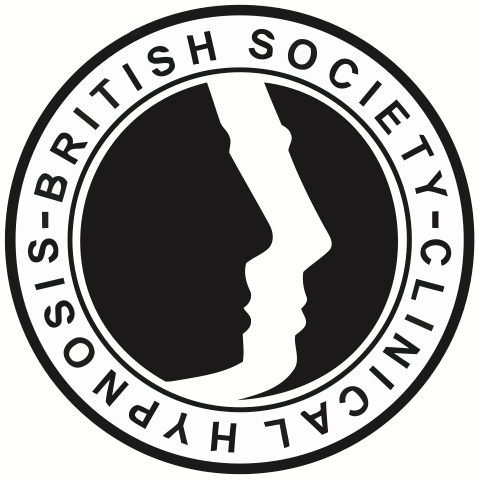Even if you have no interest in psychology, chances are you might still be familiar with names like Sigmund Freud, Carl Jung, or Pavlov. These names, along with icons like Plato and Aristotle, are some of history’s most influential thinkers.
The field of psychology has (for the most part) focused on addressing the negative. Studying what’s “wrong” with us, the human condition, what causes depression, responses to trauma, addictions etc. But there has been a shift in modern psychology over recent years as we see psychologists and scientists turning their attention toward what makes us happy, what makes us thrive.
This has become known as Positive Psychology or The Science of Happiness. The thoughts, actions, and behaviours that make us more productive at work, happier in our relationships, and more fulfilled, investigating what makes us flourish, this is the focus of the field of positive psychology.
So what is happiness?

Well, happiness means different things to different people that much is certain.
For instance, living below the poverty line will make it hard to be happy, beyond that though, money does not appear to buy happiness. I’m sure you can think of many a high profile celebrity known to have or who have had, debilitating drug or alcohol habits, divorce rates figures high on the agenda and many have even gone as far as to have committed suicide. We read stories of Lottery winners who say their lives have been ruined by money and wannabe celebrities who have rued the day their dreams of fame came true.
Research suggests that happiness is a combination of how satisfied you are with your life in general and how good you feel on a day-to-day basis. However research also suggests that if you focus too much on trying to feel good all the time, you will undermine your ability to feel good at all.
When people are asked what makes their lives worth living, they rarely say anything about their mood. They are more likely to talk about things they find meaningful, such as their work, family or social lives.
We all have the ability to control how we feel, and with practice we can form life-long habits for a more satisfying and fulfilling life.
So what can you do? Here are some top tips:
- Smile

Over a century ago William James was quoted as saying, “We don’t laugh because we’re happy, we’re happy because we laugh.” Whether your smile is real or fake – do it more often. The more we smile the more we feel like smiling – this is known as the “positive feedback loop of happiness”. When our smiling muscles contract, they fire a signal back to the brain, stimulating our reward system and increasing our level of happy hormones, endorphins. In short, when our brain feels happy we smile, and when we smile, our brain feels happier.
- Exercise
Exercise increases endorphins and other feel good brain chemicals. It reduces the stress hormone cortisol and adrenaline in the body and has been shown to reduce depression and anxiety.
- Get outdoors
Science is demonstrating what we intuitively know, nature makes us happy. Being outdoors and at one with nature has therapeutic effects and neuroscientists are starting to look at how our brains respond in different environments. When people are walking through a city or noisy area, their brains are doing different things than if they are walking in a park. The frontal lobe, the part of our brain that is engaged in modern life, deactivates a little when we’re outside. Alpha waves which indicate a calm but alert state, grow stronger.
- Spend more time with loved ones
Quality time together with the people and indeed the pets or animals we love is the key to happiness according to new research. The study of couples pre and post parenthood found that parents are shunning sports cars, jewellery and designer clothes in favour of what they say is the ultimate luxury – spending time with their family and loved ones. Research in the field of human health and medical psychology has provided evidence to suggest that dog and cat owners have better psychological and physical health than non-owners.
- Put down your phone!

Life is precious – waste it wisely. Engage in the moment. Be present. Do more things that make you forget to check your phone. Real life is in front of you – not on your phone or tablet.
- Embrace your age
Our younger years are often seen as the best years, but there are plenty of reasons to look forward to getting older. After all, more life experience means more wisdom, more skills and perhaps even more happiness. A study from the London School of Economics and Political Sciences concluded that people are the happiest at two different ages in their lives, according to data from the study, our levels of happiness in life seem to follow a U-shaped curve between the ages of 20 to 70 with our joy peaking at the ages of 23 and 69. That’s a wide window for happiness!
- Sleep more
Yeah, yeah, we’ve all heard this one, but sleep is fundamentally important to our overall sense of happiness and wellbeing. A recent study by the University of Binghamton found that subjects who slept less were more likely to experience “repetitive negative thoughts”. And it’s not about the amount of sleep so much as the quality. Hypnotherapy is proven to help greatly with insomnia and negative thinking.
- Help others

An old Chinese saying goes: “If you want happiness for an hour, take a nap. If you want happiness for a day, go fishing. If you want happiness for a year, inherit a fortune. If you want happiness for a lifetime, help somebody.” MRI scans on the brain has shown that the act of giving activates the same parts of the brain that are stimulated by food and sex. Woo hoo! Experiments show evidence that altruism is hardwired in the brain and it’s actually pleasurable. Helping others may just be the secret to living a life that is not only happier but also healthier, wealthier, more productive, and meaningful.
- Practice gratitude
Gratitude has been shown to improve physical and psychological health. People who show gratitude report fewer aches and pains, a general feeling of good health and take more regular exercise than those who don’t. Grateful people enjoy a higher sense of well-being and happiness and suffer less from depression. Grateful people are less likely to seek revenge and are more likely to behave in a pro-social manner, with sensitivity and empathy. A study (Morin 2014) discovered that expressing gratitude increased mental strength and gives people an advantage in overcoming trauma and enhanced resilience, helping them to bounce back from highly stressful situations.
- Try hypnotherapy
Hypnotherapy can help broaden your understanding of what it is that makes you feel happy. In hypnosis you will learn to connect positive feelings with the events of everyday life so that you can increase your happiness level any time you feel the need.
A clinical study (Seligman, M. 2002) concluded that hypnosis is an efficient and creative method to pave the way to a happy and full life. The following results were presented; (1) hypnosis allows for increased executive attention with control of emotions (2) focusing on positive imagery contributes to strengthening “happy pathways,” and (3) emotions about the past, present, and future are subject to change.
If you’d like to know more about how hypnotherapy can help you visit https://gailmarrahypnotherapy.com/
If you want to read more on the subject of hypnosis, you can buy the book here https://www.amazon.co.uk/Health-Wealth-Hypnosis-beautiful-life/dp/1913479234/ref=tmm_pap_swatch_0?_encoding=UTF8&qid=&sr=








